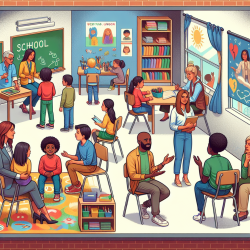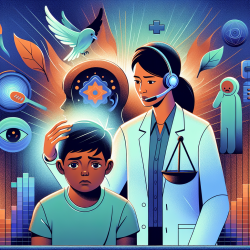Who Are School-Based Mental Health Providers?
School-based mental health providers are essential members of the educational community, working collaboratively to address the academic, career, social-emotional, and behavioral needs of students from pre-kindergarten through 12th grade. Each provider brings unique training and expertise, yet they often overlap in their roles to ensure the overall well-being of students. These professionals strive to provide equitable access to their services, allowing all students to learn, thrive, and grow.
Meet the Team
- School Counselors: They focus on academic development, college and career readiness, and social-emotional growth. They work with all students through classroom lessons, small groups, and individual counseling within a Multi-tiered System of Supports (MTSS).
- School Psychologists: These professionals offer support services to students with specific learning strategies and psychological needs. They conduct assessments and evaluations and collaborate with school counselors to provide tiered support.
- School Social Workers: They specialize in addressing social-emotional and mental health needs. They integrate school, community, and family contexts into interventions and collaborate with counselors to support students at all levels of MTSS.
- School-Based Mental Health Therapists: These therapists focus on providing mental health and behavioral support based on clinical assessments. They work with students experiencing mental health crises and collaborate with counselors for tier 3 support services.
Training and Certification
Each role requires specific training and certification:
- School Counselors: Must have a master's degree in school counseling and a valid school counselor certificate.
- School Psychologists: Require licensure such as LP, LPA, or LPP and a valid school psychologist certificate.
- School Social Workers: Need an MSW or DSW and may require LCSW or CSW certification.
- School-Based Mental Health Therapists: Require licensure such as LPCA or LPCC.
Unique Roles and Academic Support
Each provider plays a specialized role in the school setting:
- School Counselors: They provide academic support through lessons and counseling, career awareness, and social-emotional wellness activities.
- School Psychologists: Focus on small group and individual planning to remove barriers to learning, conduct risk assessments, and collaborate with counselors.
- School Social Workers: Offer interventions for social-emotional learning, collaborate with families, and provide community resource linkages.
- School-Based Mental Health Therapists: Deliver short-term and long-term counseling and collaborate with counselors and families to support mental health awareness.
Provider-to-Student Ratios
Understanding the recommended provider-to-student ratios helps in planning and resource allocation:
- School Counselors: 1:250, serving all students within the school.
- School Psychologists: 1:500, focusing on small groups and individuals.
- School Social Workers: 1:250, working with classrooms, small groups, individuals, and families.
- School-Based Mental Health Therapists: Serve clients with intensive needs, with caseloads up to 30 clients actively receiving services.
Resources and Further Reading
For more detailed information on the roles and responsibilities of school-based mental health providers, check out the Kentucky School-Based Mental Health Provider Overview. This document offers a comprehensive look at the training, roles, and support systems available to students in Kentucky.
For more information, please follow this link.










